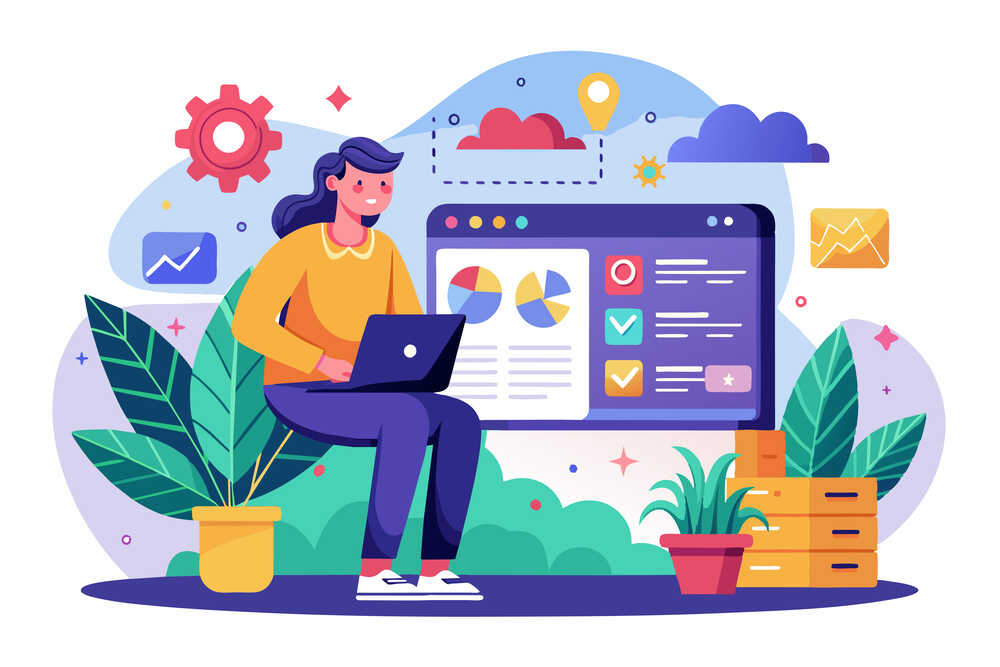How B2B SEO Solutions Drive Scalable Demand Generation
Discover how B2B SEO solutions drive scalable demand generation by attracting high-intent buyers, building authority.

Discover how AI Overviews and Google’s new AI Mode are reducing click-through rates and transforming SEO, content strategy, and user behavior in 2025.
Search is undergoing one of the biggest shifts since the introduction of mobile-first indexing. Artificial intelligence—once a behind-the-scenes component of Google’s ranking systems—is now taking center stage in the way results are displayed, consumed, and acted upon.
The rise of AI-generated search results, especially Google’s AI Overviews and the newly introduced AI Mode, is fundamentally changing how users discover information and engage with businesses online.
For marketers, SEOs, and business owners, this shift isn’t just technological—it’s behavioral and strategic. The rules of visibility, traffic, and conversions are being rewritten in real time.
In this blog, we examine the actual impact of AI-driven search results, the reasons behind declining click-through rates, and how businesses can prepare for further shifts in the landscape.
AI-generated search results refer to search engine responses that are created using artificial intelligence models rather than simply pulling and ranking existing webpages.
Instead of showing a simple list of links, search engines now provide:
In 2024–2025, Google pushed this trend further with:
These features signal a monumental change: Google is no longer just a search engine—it’s becoming a decision engine.
When AI Overviews launched widely, early data from multiple SEO platforms showed the same trend:
Click-through rates (CTR) dropped significantly for many query types.
Why? Because the AI answer appears at the very top, before any organic listing—even before ads in some cases.
AI Overviews hit hardest in sectors where search is informational or comparison-heavy:
For example, a query like “best places to visit in Bali” previously generated thousands of clicks to travel blogs.
Now, AI Overviews generate a top-level list, greatly reducing organic visits.
If AI Overviews reduced CTR, AI Mode takes the disruption to the next level.
Google AI Mode transforms search into an interactive AI assistant. Instead of producing answers only, it performs tasks:
This means users can complete an entire buyer’s journey—with minimal clicks—without ever leaving Google’s ecosystem.
Google is now integrating direct booking capabilities powered by AI, allowing users to:
All inside AI Mode.
This replaces what used to be organic traffic to business websites, restaurant directories, travel portals, or booking platforms.
Imagine a user searching:
“Book a haircut near me tomorrow morning.”
AI Mode will now:
Zero website visits. Zero manual browsing.
This is the future of search—and businesses must adapt.
If AI Overviews reduce CTR by answering questions…
AI Mode reduces CTR by completing actions.
This is a deeper behavioral shift. Users are no longer just reading results—they’re transacting directly inside AI-powered interfaces.
Users can get all the information they need—reviews, pricing, schedules—within AI Mode.
Previously, a user might:
AI Mode compresses this into a single step.
Businesses lose valuable traffic traditionally essential for:
This shift forces marketers to rethink their acquisition strategy.
Google’s objective is clear:
Keep users inside Google’s ecosystem longer.
AI-generated experiences:
Essentially, Google is building a future where the search engine is also:
Organic traffic becomes a secondary priority in this model—and businesses need to prepare accordingly.
With AI Overviews and AI Mode taking center stage, SEO is no longer just about ranking on the first page.
It’s about earning visibility inside AI-generated summaries and decision flows.
Here’s what brands must understand:
Content that simply targets keywords and ranks well may still appear on Page 1, but:
High rankings no longer guarantee high traffic.
AI Overviews extract:
from top-ranking websites and compress them into short summaries.
This reduces the need to visit those original pages.
Google AI Overview cites sources—sometimes.
Being included in AI Overviews becomes the new battleground.
If Google reduces organic visits:
becomes essential for maintaining reach.
If traffic decreases, every visitor must count.
Businesses must focus on:
Quality over quantity becomes the mantra.
This shift is big—but not impossible to navigate. Here are effective strategies to stay ahead.
AI Overviews pull information from clear, authoritative sources.
To be included:
Google is more likely to use your content if it’s clean, factual, and structured.
Examples:
AI struggles to summarize unique insights that don’t exist elsewhere.
With Google prioritizing bookings:
If Google is becoming the booking engine, your business must meet users where they are.
Offer:
If you cannot rely on organic traffic long term, lean on owned channels.
Topic clusters increase trust and content depth—making it more likely Google cites your site in AI summaries.
When AI reduces visibility, a strong brand rescues you.
Users who know you will search for you directly.
The short answer: No—but it will transform it.
AI will not eliminate SEO, but it will:
SEO is not dying—it’s evolving.
Businesses that adapt early will dominate; those that resist will lose visibility fast.
AI Overviews and Google’s new AI Mode with booking capabilities mark a turning point in search history. Search engines are no longer passive directories—they’re active assistants shaping user choices. Yes, click-through rates are decreasing, but brands that evolve with this new paradigm will find new pathways to visibility and conversions.
The future belongs to businesses that embrace:
Search is changing. SEO is changing.
But opportunities still exist—if you understand where users are going next.